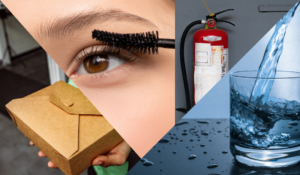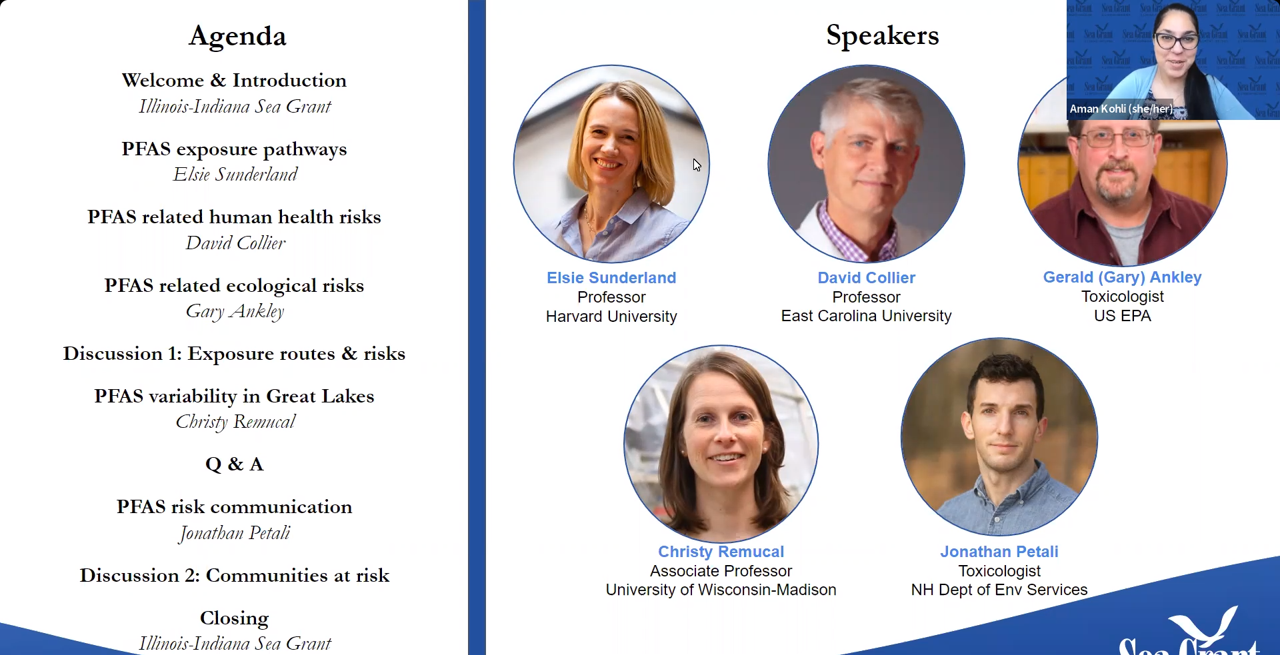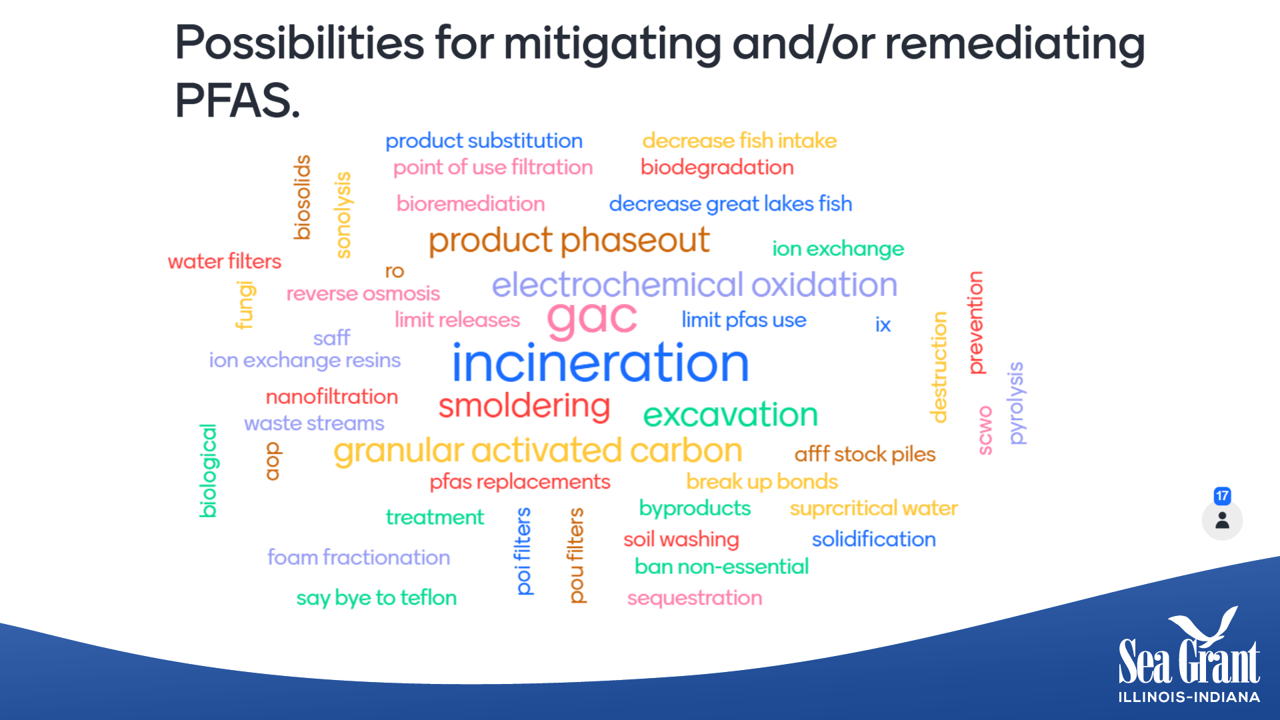
Per- and polyfluoroalkyl substances (PFAS) are a suite of hundreds-to-thousands of manufactured “forever chemicals” that are persistent in nature and toxic to many organisms. Additional chemical precursors, metabolites, or degradates to PFAS and related substances exist in nature and have potential to be toxic to many organisms. While much remains to be learned about the fate and transport of PFAS and related compounds in the environment, people and communities are currently being impacted by the ubiquitous nature of PFAS and related compounds—for example, in drinking water, food, packaging, personal care products, and building materials.
With support from the National Sea Grant Office, the Illinois-Indiana Sea Grant College Program (IISG) has $400,000 to invest in promising research projects relevant to social and economic impacts of PFAS exposure, mitigation, and remediation in the Great Lakes and Lake Champlain regions. For purposes of this competition, “PFAS” refers to any component of the suite of per- and polyfluoralkyl substances and related compounds, including precursors. Work is to be conducted between October 1, 2023 and March 31, 2025. Work can be conducted anywhere in the Great Lakes and Lake Champlain regions so long as it supports the priorities identified in this document. Priorities were identified via a series of scoping activities (3 workshops, 1 survey) in early 2023.
A full report of the scoping effort, which includes additional details on key demographic groups and research needs for the regions, can be found at the project webpage. The full request for proposals including submission guidance is available, but a synopsis is also provided below.
Projects should propose to answer a clear research question or set of related questions, should focus on one or more groups that live, work, and/or recreate in the Great Lakes and Lake Champlain regions, and should demonstrate fit with one or more of the following research priorities. The priorities are not listed in any particular order.
Understanding exposure to PFAS
- Improved understanding of how different groups or communities may be differentially exposed to PFAS, e.g., higher consumption of fish on a regular basis; use of well or other waterways that are not regularly monitored or not currently monitored
- How exposure and consumption to PFAS translates within the context of traditional knowledge
Communicating risks and actions for PFAS
- How to best communicate uncertainty surrounding the scientific knowledge of PFAS and its effects, while also ensuring members of the public, or specific communities (e.g., those at higher risk of PFAS exposure, those more susceptible to effects of PFAS) take appropriate action to keep themselves safe
- How to effectively communicate taking action(s) that are most successful at reducing or preventing PFAS exposure
Economic impacts of PFAS
- What are the economic impacts of PFAS contamination on communities, considering matrices such as drinking water, fish consumption, solid waste application
- Cost-benefit analyses of the most effective and efficient treatment methodologies for PFAS
Policies and regulations for PFAS
- How to implement effective policies and regulations around PFAS including at local, regional, and international levels
- Examination of the potential impacts of total vs. partial bans of PFAS
Prospective PIs must submit a letter of intent at least 4 weeks before the full proposal submission date. Letters of intent should be emailed to iisg@purdue.edu by July 3, 2023.
Applicants who provided a letter of intent on time should submit all proposal materials via https://esg.iiseagrant.org/ by 11:59 p.m. Central time on July 31, 2023. Applications should be submitted to the “Regional PFAS Research Competition.”
Questions about this opportunity should be directed to BOTH Amanpreet Kohli (kohli19@purdue.edu) and Carolyn Foley (cfoley@purdue.edu).
Illinois-Indiana Sea Grant is a partnership between NOAA, University of Illinois Extension, and Purdue University Forestry and Natural Resources, bringing science together with communities for solutions that work. Sea Grant is a network of 34 science, education and outreach programs located in every coastal and Great Lakes state, Lake Champlain, Puerto Rico and Guam.
Contact: Carolyn Foley, Sarah Zack



